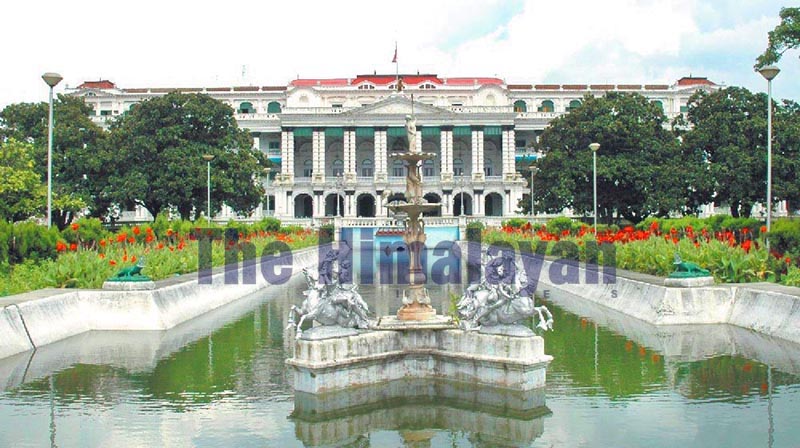Media industry seeks govt relief as revenue source hit
Kathmandu, April 28
With the government supporting several businesses hit by the coronavirus pandemic through relief measures, stakeholders have said the media industry should not be overlooked.
Stating that the closure of businesses across the country for more than a month has adversely affected the revenue source, hitting operation of media houses and rendering them incapable of sustaining workers, media houses and journalists have urged the government to ensure the sustainability of media houses and staff.
While the Federation of Nepali Journalists had already submitted a memorandum to the government about two weeks back highlighting the problems being faced by media houses and journalists during the COVID-19 pandemic and subsequent nationwide lockdown, Media Society — the umbrella organisation of private publications and television broadcasters — has unofficially notified the government regarding the challenge of sustaining their businesses.
“As the world and the entire economy have become victims of the pandemic, the media industry cannot be an exception. A majority of media houses are facing sustainability challenges while responsibly disseminating information even during a crisis,” said Madan Lamsal, general secretary of Media Society.
“However, the government’s perspective towards the media industry is far from supportive and we are not optimistic that the government will support us during this crisis though we are in dire need of support like other industries,” he stated.
According to him, the government should provide soft loans to media houses and defer repayment of loans that they have taken from banks. “We can sustain and protect workers (journalists) only if we are able to sustain our business. However, the government has failed to recognise the role that mainstream media has played and could play at the time of such a crisis,” added Lamsal.
FNJ officials also said journalists were working on the frontline and risking their lives and both media houses and the government should provide them with optimum support, especially during such a crisis.
“While it is the duty of media houses to take care of journalists properly and effectively, it is the responsibility of the government to support media houses through different relief measures,” said Ramesh Bista, general secretary of FNJ.
Stating that a few media houses that were asking workers to go on unpaid leave have been stopped from doing so, Bista said media houses should pressure the government for necessary support. “The government should offer relief to media houses on electricity charges, rental fee and internet charge, among others. However, media houses cannot compromise on the facilities being provided to journalists,” added Bista.
A number of countries have included the media industry in their stimulus packages. Among others, the Australian government has unveiled a support package for local media businesses, including a 12-month waiver on spectrum tax for commercial television and radio broadcasters, and a public interest news gathering programme worth 50 million Australian dollars. More recently, the New Zealand government announced it would spend 50 million New Zealand dollars (£25 million) on ailing media businesses during the coronavirus-induced downturn.
Nepal government officials, meanwhile, said the impact of coronavirus pandemic on the local media industry was being analysed.
“We have been studying and analysing suggestions received from the Media Society and FNJ. Necessary relief to different sectors, including the media industry, is likely to be addressed through the upcoming budget for fiscal 2020-21,” said Shree Rishi Ram Tiwari, spokesperson for the Ministry of Communications and Information Technology.
A version of this article appears in e-paper on April 29, 2020, of The Himalayan Times.






